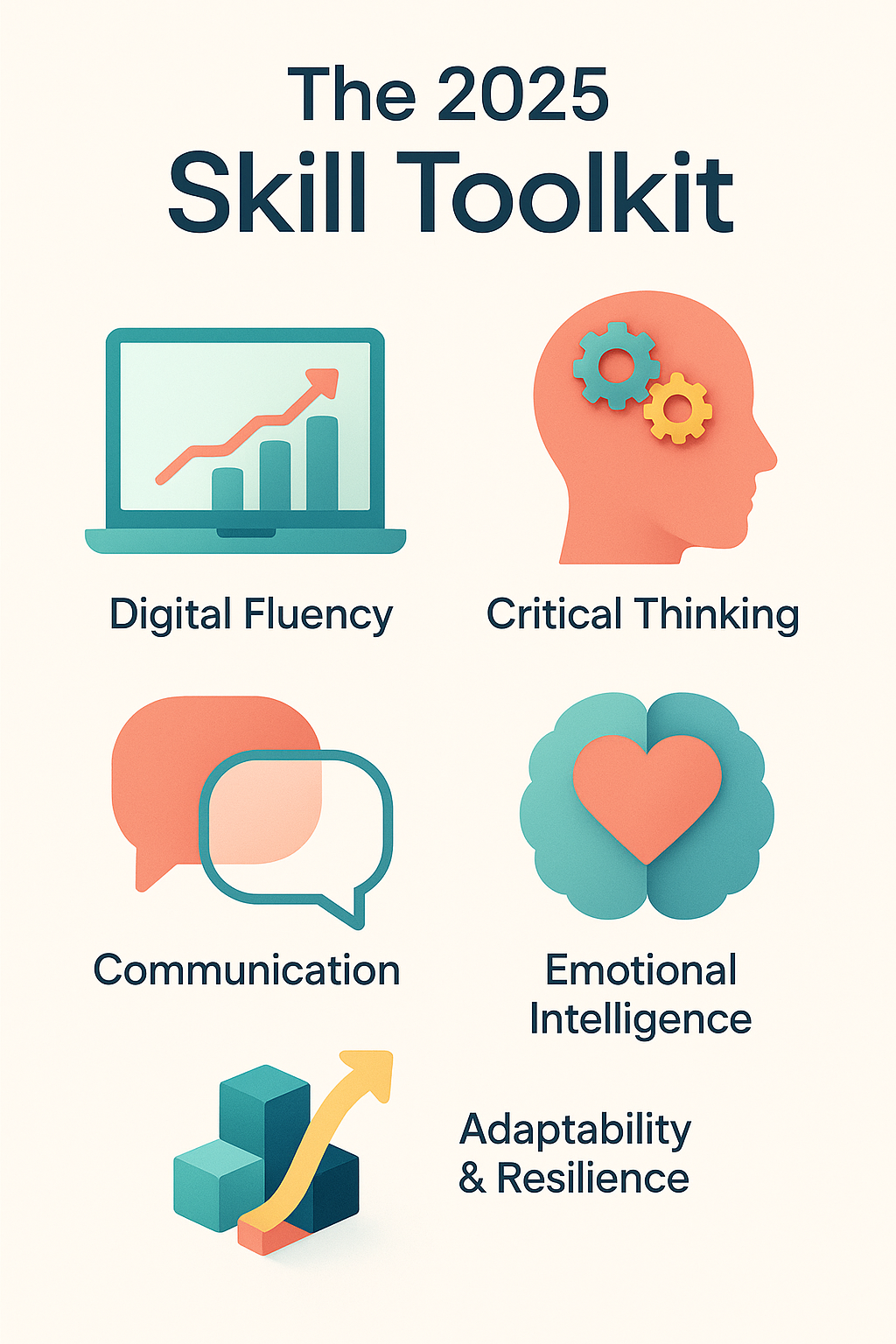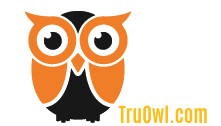For decades, the formula for a successful career seemed simple: get good grades, land a good job. But as we head into 2025, that playbook is being rewritten. Employers are sending a clear message: a high GPA is nice, but it’s not the main event.
In fact, a national survey by the National Association of Colleges and Employers (NACE) found that nearly 90% of employers prioritize problem-solving skills, while only 38% still use GPA as a primary filter. As NACE CEO Shawn VanDerziel advises, students should focus on developing real-world competencies “through the various experiences they have inside and outside of the classroom.”
Your degree gets you in the door. Your skills get you the job and help you thrive. Here are the five non-academic skills you need to build to succeed personally and professionally in 2025 and beyond.
To kick things off, here is a visual guide to the five essential skills we will be covering.

(Image: The 2025 Skill Toolkit)
1. Digital Fluency: More Than Just Scrolling
In 2025, tech skills aren’t just for coders; they’re for everyone. According to the World Economic Forum, while automation may displace some roles, it will also create 97 million new tech-enabled jobs by 2025. The opportunities will go to those who can adapt. Digital fluency isn’t about your follower count; it’s about using technology to solve problems. This includes:
- Productivity Powerhouses: Mastering tools like Excel, Google Sheets, Trello, or Slack.
- Seamless Communication: Professional email and video conferencing etiquette.
- Data & AI Awareness: A basic understanding of how AI is shaping your field.
- Digital Self-Defense: Practicing good cybersecurity and knowing how to vet online information.
As one hiring manager put it, “There’s no excuse – there are free tutorials for everything. Show that you’re taking the initiative.” Don’t be intimidated by new software. Embrace the tools of your trade.
2. Critical Thinking: The Ultimate Problem-Solving Power
Analytical thinking is the #1 most sought-after skill for 2025, according to the same WEF report. Why? Because the modern workplace is filled with unexpected challenges. Companies need people who can think on their feet, analyze complex situations, and devise creative solutions – not just follow instructions.
Stat to Know: In a recent Job Outlook survey, employers ranked communication, problem-solving, and time management as more important than many technical qualifications. Your ability to think things through is your greatest asset.
3. Masterful Communication: Getting Your Ideas Heard
The most brilliant idea is useless if it stays in your head. A staggering 86% of employees and executives blame workplace failures on poor communication, while teams that communicate effectively can see a productivity boost of up to 25% (as reported by Apollo Technical).
Great communication isn’t about using big words. It’s about:
- Active Listening: Truly hearing what others are saying.
- Clarity: Organizing your thoughts and expressing them concisely.
- Knowing Your Audience: Adjusting your tone and language.
- Giving and Receiving Feedback: Offering constructive criticism gracefully.
As MIT Sloan lecturer Kara Blackburn told Harvard Business Review, “You can have all the great ideas in the world, but if you can’t communicate, nobody will hear them.”
4. Emotional Intelligence (EQ): The Human Advantage
In an age of AI, our uniquely human qualities are our biggest professional assets. A remarkable 71% of employers say they value emotional intelligence more than IQ, a finding highlighted by Harvard Business School Online. People with high EQ are better collaborators, more adaptable, and more resilient under pressure.
Think of it this way: When a project hits a snag, the person with high EQ is the one who says, “Okay, deep breath. Let’s figure this out together,” instead of assigning blame.
Why it Matters: Psychologist Daniel Goleman, who popularized EQ, noted that while IQ and technical skills are “entry-level requirements,” a high degree of emotional intelligence is what distinguishes the most effective leaders.
5. Adaptability & Resilience: How to Bounce Back Stronger
If the last few years have taught us anything, it’s that change is the only constant. The World Economic Forum ranks “resilience, flexibility, and agility” among the fastest-rising skills in importance.
Employers love to see evidence of these traits. You can build these skills by cultivating a growth mindset. View challenges not as threats, but as opportunities to learn. When something doesn’t go as planned, ask yourself, “What can I learn from this?” and “What will I try next?”
Building Your Toolkit
As you prepare for your future, remember that your diploma is a starting point, not the finish line. By focusing on these skills, you’ll be building a foundation for success that grades alone can’t provide. So, take that coding class, lead that group project, and step outside your comfort zone.
